#labor theft
Text
Why we’re against AI as a writing tool
Sophisticated AI tools like ChatGPT are the result of systemic, shameless theft of intellectual property and creative labor on a massive scale. These companies have mined the data of human genius… without permission. They have no intention of acknowledging their stolen sources, let alone paying the creators.
The tech industry’s defense is “Well, we stole so much from so many that it kinda doesn’t count, wouldn’t ya say?” Which is an argument that makes me feel like the mayor of Crazytown. I don’t doubt the courts will rule in their favor, not because it’s right, but because the opportunities for wealth generation are too succulent to let a lil’ thang like fairness win.
I’m not a luddite. I recognize that AI feels like magic to people who aren’t strong writers. I’d feel differently if the technology was achieved without the theft of my work. Couldn’t these tools have been made using legally obtained materials? Ah, but then they wouldn’t have been first to market! Think of the shareholders!
We’re lucky to have the ability and will to write. We won’t willingly use tools that devalue that skill. At most, I could see us using AI to assist with specific, narrow tasks like transcribing interview audio into text.
At a recent industry meetup, I listened as two personal finance gurus gushed about how easy AI made their lives. “All my newsletters and blogs are AI now! I add my own touches here and there—but it does 95% of the work!” Must be nice, I whispered to the empty void where my faith in mankind once dwelt, fingernails digging into my palms. It’s tough knowing I’m one of the myriad voices “streamlining their production.”
I feel strongly that every content creator who uses AI has a minimum duty to acknowledge it. Few will. It sucks. I’m frothing. Let’s move on.
Read more.
102 notes
·
View notes
Text
I was meeting a client at a famous museum’s lounge for lunch (fancy, I know) and had an hour to kill afterwards so I joined the first random docent tour I could find. The woman who took us around was a great-grandmother from the Bronx “back when that was nothing to brag about” and she was doing a talk on alternative mediums within art.
What I thought that meant: telling us about unique sculpture materials and paint mixtures.
What that actually meant: an 84yo woman gingerly holding a beautifully beaded and embroidered dress (apparently from Ukraine and at least 200 years old) and, with tears in her eyes, showing how each individual thread was spun by hand and weaved into place on a cottage floor loom, with bright blue silk embroidery thread and hand-blown beads intricately piercing the work of other labor for days upon days, as the labor of a dozen talented people came together to make something so beautiful for a village girl’s wedding day.
What it also meant: in 1948, a young girl lived in a cramped tenement-like third floor apartment in Manhattan, with a father who had just joined them after not having been allowed to escape through Poland with his pregnant wife nine years earlier. She sits in her father’s lap and watches with wide, quiet eyes as her mother’s deft hands fly across fabric with bright blue silk thread (echoing hands from over a century years earlier). Thread that her mother had salvaged from white embroidery scraps at the tailor’s shop where she worked and spent the last few days carefully dying in the kitchen sink and drying on the roof.
The dress is in the traditional Hungarian fashion and is folded across her mother’s lap: her mother doesn’t had a pattern, but she doesn’t need one to make her daughter’s dress for the fifth grade dance. The dress would end up differing significantly from the pure white, petticoated first communion dresses worn by her daughter’s majority-Catholic classmates, but the young girl would love it all the more for its uniqueness and bright blue thread.
And now, that same young girl (and maybe also the villager from 19th century Ukraine) stands in front of us, trying not to clutch the old fabric too hard as her voice shakes with the emotion of all the love and humanity that is poured into the labor of art. The village girl and the girl in the Bronx were very different people: different centuries, different religions, different ages, and different continents. But the love in the stitches and beads on their dresses was the same. And she tells us that when we look at the labor of art, we don’t just see the work to create that piece - we see the labor of our own creations and the creations of others for us, and the value in something so seemingly frivolous.
But, maybe more importantly, she says that we only admire this piece in a museum because it happened to survive the love of the wearer and those who owned it afterwards, but there have been quite literally billions of small, quiet works of art in billions of small, quiet homes all over the world, for millennia. That your grandmother’s quilt is used as a picnic blanket just as Van Gogh’s works hung in his poor friends’ hallways. That your father’s hand-painted model plane sets are displayed in your parents’ livingroom as Grecian vases are displayed in museums. That your older sister’s engineering drawings in a steady, fine-lined hand are akin to Da Vinci’s scribbles of flying machines.
I don’t think there’s any dramatic conclusions to be drawn from these thoughts - they’ve been echoed by thousands of other people across the centuries. However, if you ever feel bad for spending all of your time sewing, knitting, drawing, building lego sets, or whatever else - especially if you feel like you have to somehow monetize or show off your work online to justify your labor - please know that there’s an 84yo museum docent in the Bronx who would cry simply at the thought of you spending so much effort to quietly create something that’s beautiful to you.
#shut up e#long post#Saturday thoughts#this has been in my drafts for a week haha#also this is the heart of why AI art feels so wrong#forget the discussion of copyright and theft etc - even if models were only trained on public domain they would still feel very wrong#because they’re not art. art is the labor of creation#even commercial art and art commissioned by the popes and kings of history: there is humanity in the labor of it#unrelated: I did not know living in the Bronx was now something to brag about. How the fuck do y’all New Yorkers afford this city???
27K notes
·
View notes
Text
😡
“Waffle House shafts its servers out of a portion of their pay by requiring that they also wash dishes and cook, labor advocates say.
The restaurant chain engages in "rampant wage theft like performing non-tipped work for tipped wages," according to the Union of Southern Service Workers, or USSW, which filed a complaint with the Department of Labor on Thursday.
In it, the union accuses the Georgia-based corporation of violating the Fair Labor Standards Act's tip credit requirements and failure to pay servers the federal minimum wage, which has been stalled at $7.25 since 2009.
Employers can satisfy a part of the minimum wage obligation to tipped workers by taking a partial credit, paying an hourly rate of as little as $2.13 so long as its for tipped employees who receive enough in gratuities to earn the minimum, according to the DOL.
Waffle House CEO Joe Rogers III announced the company was hiking base pay for servers to $3 an hour in June.”
#Waffle House#corporate greed#tipped minimum wage#minimum wage#wage theft#Republican endorsed wage theft#unionize now#labor unions for all#organized labor now
148 notes
·
View notes
Text
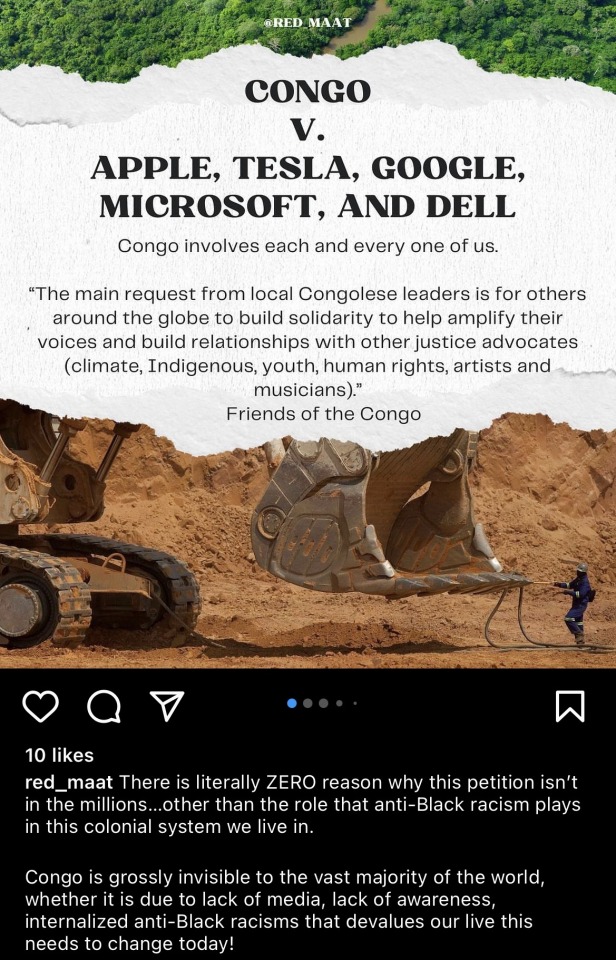
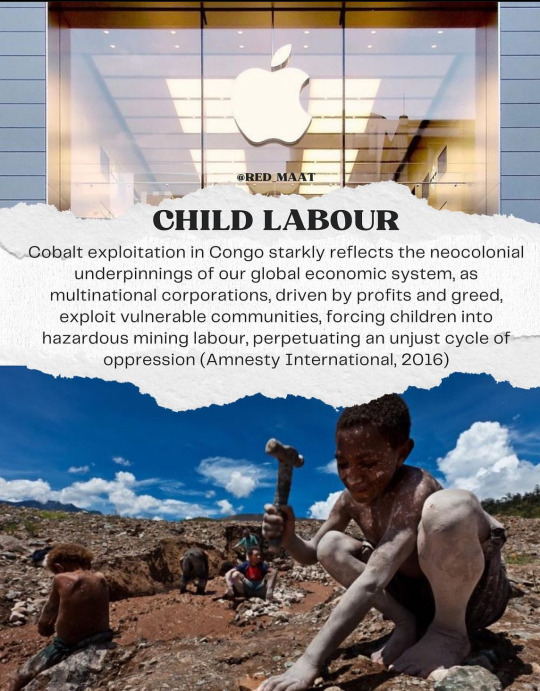
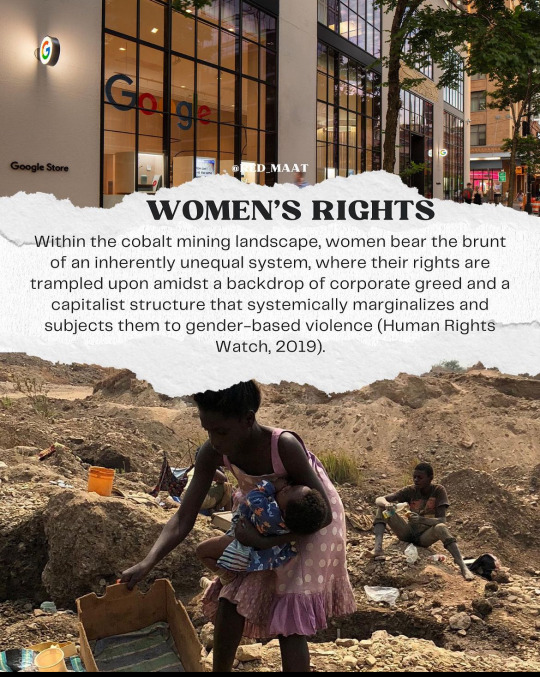
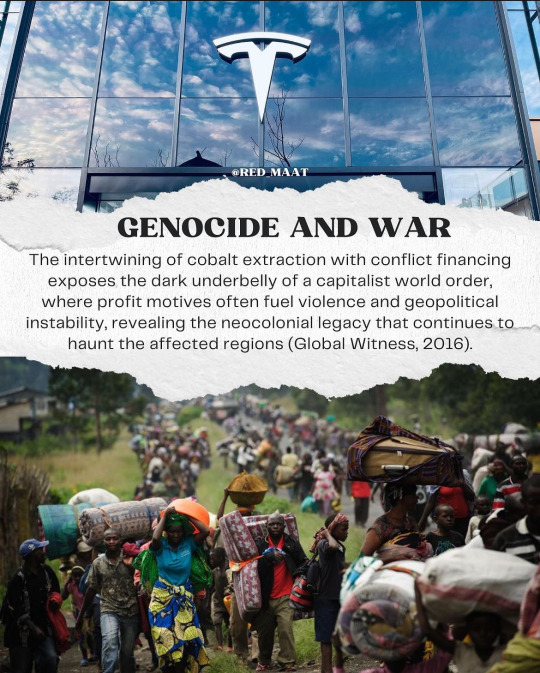
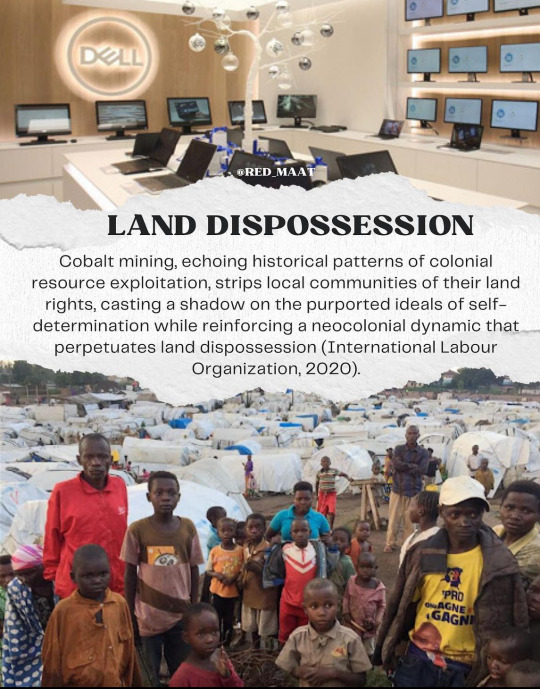
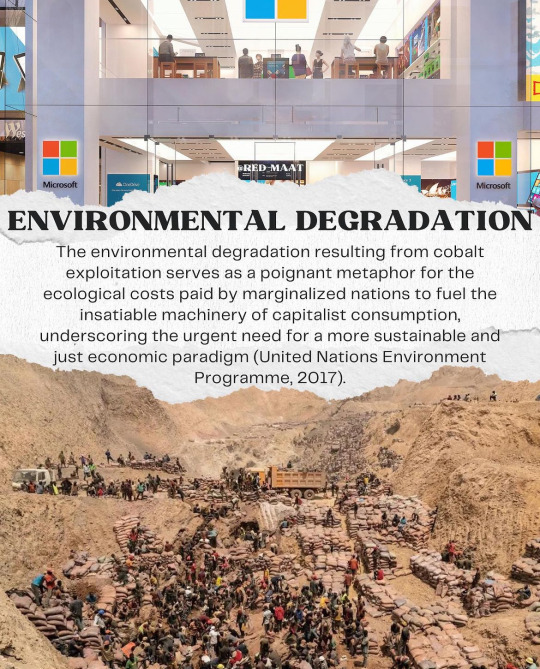
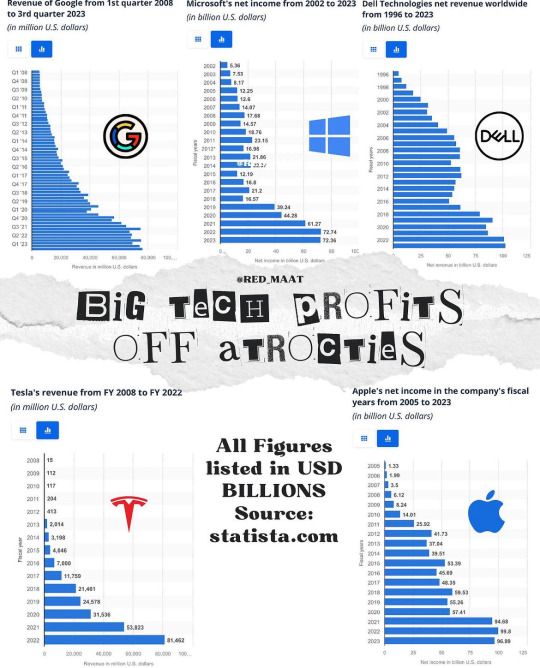
#congo#drc#signal boost#genocide#exploitation#theft#resources#child labor#crimes against humanity#modern day slavery#womens rights#black lives matter#black liberation#the cost of technology#cobalt mining#current events#colonialism#imperialism#red maat#tysir salih#Democratic Republic of the Congo#dr congo#congo kinshasa#the congo
333 notes
·
View notes
Text
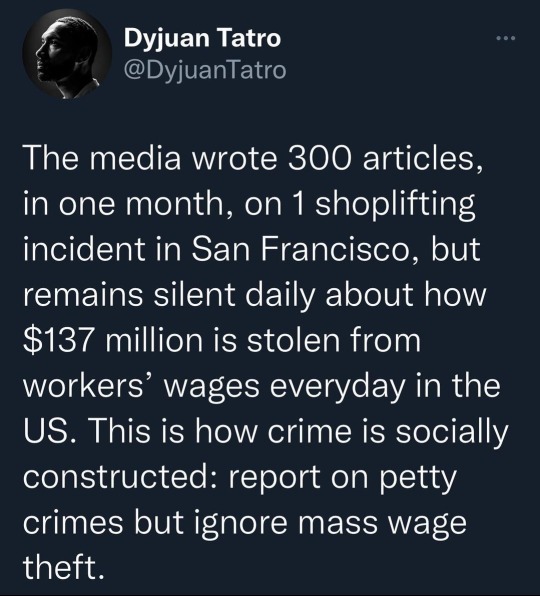

Steal a candy bar and go to jail. Steal billions and call yourself a CEO.
1K notes
·
View notes
Text
An excerpt from The Bezzle

I'm on tour with my new novel The Bezzle! Catch me next in SALT LAKE CITY (Feb 21, Weller Book Works) and SAN DIEGO (Feb 22, Mysterious Galaxy). After that, it's LA, Seattle, Portland, Phoenix and more!

Today, I'm bringing you part one of an excerpt from Chapter 14 of The Bezzle, my next novel, which drops on Feb 20. It's an ice-cold revenge technothriller starring Martin Hench, a two-fisted forensic accountant specialized in high-tech fraud:
https://us.macmillan.com/books/9781250865878/thebezzle
Hench is the Zelig of high-tech fraud, a character who's spent 40 years in Silicon Valley unwinding every tortured scheme hatched by tech-bros who view the spreadsheet as a teleporter that whisks other peoples' money into their own bank-accounts. This setup is allowing me to write a whole string of these books, each of which unwinds a different scam from tech's past, present and future, starting with last year's Red Team Blues (now in paperback!), a novel that whose high-intensity thriller plotline is also a masterclass in why cryptocurrency is a scam:
https://us.macmillan.com/books/9781250865854/redteamblues
Turning financial scams into entertainment is important work. Finance's most devastating defense is the Shield Of Boringness (h/t Dana Clare) – tactically deployed complexity designed to induce the state that finance bros call "MEGO" ("my eyes glaze over"). By combining jargon and obfuscation, the most monstrous criminals of our age have been able to repeatedly bring our civilization to the brink of collapse (remember 2008?) and then spin their way out of it.
Turning these schemes into entertainment is hard, necessary work, because it incinerates the respectable suit and tie and leaves the naked dishonesty of the finance sector on display for all to see. In The Big Short, they recruited Margot Robbie to explain synthetic CDOs from a bubble-bath. And John Oliver does this every week on Last Week Tonight, coming up with endlessly imaginative stunts and gags to flense the bullshit, laying the scam economy open to the bone.
This was my inspiration for the Hench novels (I've written and sold three of these, of which The Bezzle is number two; I've got at least two more planned). Could I use the same narrative tactics I used to explain mass surveillance, cryptography and infosec in the Little Brother books to turn scams into entertainment, and entertainment into the necessary, informed outrage that might precipitate change?
The main storyline in The Bezzle concerns one of the most gruesome scams in today's America: prison-tech, which sees America's vast army of prisoners being stripped of letters, calls, in-person visits, parcels, libraries and continuing ed in favor of cheap tablets that bilk prisoners and their families of eye-watering sums for every click they make:
https://pluralistic.net/2024/02/14/minnesota-nice/#shitty-technology-adoption-curve
But each Hench novel has a variety of side-quests that work to expose different kinds of financial chicanery. The Bezzle also contains explainers on the workings of MLMs/Ponzis (and how Gerry Ford and Betsy DeVos's father-in-law legalized one of the most destructive forces in America) and the way that oligarchs, foreign and domestic, use Real Estate Investment Trusts to hide their money and destroy our cities.
And there's a subplot about music-royalty theft, a form of pernicious wage theft that is present up and down the music industry supply-chain. This is a subject that came up a lot when Rebecca Giblin and I were researching and writing Chokepoint Capitalism, our 2022 book about creative labor markets:
https://chokepointcapitalism.com/
Two of the standout cases from that research formed the nucleus of the subplot in The Bezzle, the case of Leonard Cohen's batshit manager who stole millions from him and then went to prison for stalking him, leaving him virtually penniless and forced to keep touring to keep himself fed:
https://www.theguardian.com/music/2012/apr/19/leonard-cohen-former-manager-jailed
The other was George Clinton, whose manager forged his signature on a royalty assignment, then used the stolen money to defend himself against Clinton's attempts to wrestle his rights back and even to sue Clinton for defamation for writing about the caper in his memoir:
https://www.musicconnection.com/the-legal-beat-george-clinton-wins-defamation-case/
That's the tale that this excerpt – which I'll be serializing in six parts over the coming week – tells, in fictionalized form. It's not Margot Robbie in a bubble-bath, it's not a John Oliver monologue, but I think it's pretty goddamned good.
I'm leaving for a long, multi-city, multi-country, multi-continent tour with The Bezzle next Wednesday, starting with an event at Weller Bookworks in Salt Lake City on the 21st:
https://www.wellerbookworks.com/event/store-cory-doctorow-feb-21-630-pm
I'll in be in San Diego on the 22nd at Mysterious Galaxy:
https://www.mystgalaxy.com/22224Doctorow
And then it's on to LA (with Adam Conover), Seattle (with Neal Stephenson), Portland, Phoenix and beyond:
https://pluralistic.net/2024/02/16/narrative-capitalism/#bezzle-tour
I hope you'll come out for the tour (and bring your friends)!

Between 1972 and 1978, Steve Soul (a.k.a. Stefon Magner) had a string of sixteen Billboard Hot 100 singles, one of which cracked the Top 10 and won him an appearance on Soul Train. He is largely forgotten today, except by hip-hop producers who prize his tracks as a source of deep, funky grooves. They sampled the hell out of him, not least because his rights were controlled by Inglewood Jams, a clearinghouse for obscure funk tracks that charged less than half of what the Big Three labels extracted for each sample license.
Even at that lower rate, those license payments would have set Stefon up for a comfortable retirement, especially when added to his Social Security and the disability check from Dodgers Stadium, where he cleaned floors for more than a decade before he fell down a beer-slicked bleacher and cracked two of his lumbar discs. But Stefon didn’t get a dime. His former manager, Chuy Flores, forged his signature on a copyright assignment in 1976. Stefon didn’t discover this fact until 1979, because Chuy kept cutting him royalty checks, even as Stefon’s band broke up and those royalties trickled off. In Stefon’s telling, the band broke up because the rest of the act—especially the three-piece rhythm section of two percussionists and a beautiful bass player with a natural afro and a wild, infectious hip-wiggle while she played—were too coked up to make it to rehearsal, making their performances into shambling wreckages and their studio sessions into vicious bickerfests. To hear the band tell of it, Stefon had bad LSD (“Lead Singer Disease”) and decided he didn’t need the rest of them. One thing they all agreed on: there was no way Stefon would have signed over the band’s earnings to Chuy, who was little more than a glorified bookkeeper, with Stefon hustling all their bookings and even ordering taxis to his bandmates’ houses to make sure they showed up at the studio or the club on time. Stefon remembered October of ’79 well. He’d been waiting with dread for the envelope from Chuy. The previous royalty check, in July, had been under $250. The previous quarter’s had been over $1,000. This quarter’s might have zero. Stefon needed the money. His 1972 Ford Galaxie needed a new transmission. He couldn’t keep driving it in first.
The envelope arrived late, the day before Halloween, and for a brief moment, Stefon was overcome by an incredible, unbelieving elation: Chuy’s laboriously typewritten royalty statement ended with the miraculous figure of $7,421.16. Seven thousand dollars! It was more than two years’ royalties, all in one go! He could fix the Galaxie’s transmission and get the ragtop patched, and still have money left over for his back rent, his bar tab, his child support, and a fine steak dinner, and even then, he’d end the month with money in his savings account.
But there was no check in the envelope. Stefon shook the envelope, carefully unfolded the royalty statement to ensure that there was no check stapled to its back, went downstairs to the apartment building lobby and rechecked his mailbox.
Finally, he called Chuy.
“Chuy, man, you forgot to put a check in the envelope.”
“I didn’t forget, Steve. Read the paperwork again. You gotta send me a check.”
“What the fuck? That’s not funny, Chuy.”
“I ain’t joking, Steve. I been advancing you royalties for more than three years, but you haven’t earned nothing new since then—no new recordings. I can’t afford to carry you no more.”
“Say what?”
Chuy explained it to him like he was a toddler. “Remember when you signed over your royalties to me in ’76? Every dime I’ve sent you since then was an advance on your future recordings, only you haven’t had none of those, so I’m cutting you off and calling in your note. I’m sorry, Steve, but I ain’t a charity. You don’t work, you don’t earn. This is America, brother. No free lunches.”
“After I did what in ’76?”
“Steve, in 1976 you signed over all your royalties to me. We agreed, man! I can’t believe you don’t remember this! You came over to my spot and I told you how it was and you said you needed money to cover the extra horns for the studio session on Fight Fire with Water. I told you I’d cover them and you’d sign over all your royalties to me.”
Stefon was briefly speechless. Chuy had paid the sidemen on that session, but that was because Chuy owed him a thousand bucks for a string of private parties they’d played for some of Chuy’s cronies. Chuy had been stiffing him for months and Stefon had agreed to swap the session fees for the horn players in exchange for wiping out the debt, which had been getting in the way of their professional relationship.
“Chuy, you know it didn’t happen that way. What the fuck are you talking about?”
“I’m talking about when you signed over all your royalties to me. And you know what? I don’t like your tone. I’ve carried your ass for years now, sent you all that money out of my own pocket, and now you gotta pay up. My generosity’s run out. When you gonna send me a check?”
Of course, it was a gambit. It put Stefon on tilt, got him to say a lot of ill-advised things over the phone, which Chuy secretly recorded. It also prompted Stefon to take a swing at Chuy, which Chuy dived on, shamming that he’d had a soft-tissue injury in his neck, bringing suit for damages and pressing an aggravated-assault charge.
He dropped all that once Stefon agreed not to keep on with any claims about the forged signature; Stefon went on to become a good husband, a good father, and a hard worker. And if cleaning floors at Dodgers Stadium wasn’t what he’d dreamed of when he was headlining on Soul Train, at least he never missed a game, and his boy came most weekends and watched with him. Stefon’s supervisor didn’t care.
But the stolen royalties ate at him, especially when he started hearing his licks every time he turned on the radio. His voice, even. Chuy Flores had a fully paid-off three-bedroom in Eagle Rock and two cars and two ex-wives and three kids he was paying child support on, and Stefon sometimes drove past Chuy Flores’s house to look at his fancy palm trees all wrapped up in strings of Christmas lights and think about who paid for them.
ETA: Here's part two!

If you'd like an essay-formatted version of this post to read or share, here's a link to it on pluralistic.net, my surveillance-free, ad-free, tracker-free blog:
https://pluralistic.net/2024/02/17/the-steve-soul-caper/#lead-singer-disease
#pluralistic#the bezzle#martin hench#marty hench#red team blues#fiction#crime fiction#crime thrillers#thrillers#technothrillers#novels#books#royalties#wage theft#creative labor
99 notes
·
View notes
Text
I want to chime in to the ''AI debate'' to cut the debate on the whole ''but these machines are inspired by art just like humans are!'' from root.
THAT'S NOT THE DISCUSSION HERE. This is not a philosophy debate. There's an active, material WORKERS RIGHTS issue here.
These are companies straight up using artists's work without licensing or compensation to cleanly do what's basically a collage of all their works and then profiting off it.
They are actively and consciously trying to cut the labor from artists, illustrators and visual developers from all industries that need our work to exist by stealing their already existing copyright.
And yes, the artists who are currently suing and on the frontlines against this DO know how these AI systems work. It's not a mystery. Go check out Karla Ortiz (& co) exposition on it in front of the US Senate.
The outrage isn't based on some unfounded fear. It's based on knowledge from experienced artists on how our process works and how it's very different from this "AI". It's not artificial inteligence yet. It's prompts that the machine uses to create from a database of already existing, non-consenting artists.
The outrage is based on the fact that some of these prompts are literally artists names, deceased or alive, none of them compensated. This was a conscious decision made fully aware that it was a legal iffy zone. Since "AI" hasn't been legislated yet and there's no regulations, they took advantage of the legal grey zone.
So. This isn't a "human insecure they're replaced by a machine" issue. This is a "workers's copyright is infringed by companies and individuals who seize a legal grey-zone to profit off using their non-consensual, unpaid work" issue.
The whole "bohoo it works just like inspiration!" argument is a misdirection the people who are actively profiting off this labor theft throw to distract and create a debate of something that isn't debatable.
And also? It's incorrect. That's... not how "inspiration" works. The closest example to what Midjourney, etc do would be if I as a working artist did photobashing and tracing from other known artists, without any processing of an idea, without any comprehension of form and meaning. That is... 1) Impossible. Any human artist de facto needs to put some level of thought, decision and idea - even if they're just making a collage. These servers do not have intelligence , no matter the name, to make decisions. They work by inputs. 2) If the photobashing or tracing is based from non-licensed pictures, that would get the human artist into legal trouble or, at the very least, put them in murky waters. See the Kevin Bao scandal.
TLDR; The current fight from working artists against Midjourney, StableDiffusion and "AI" generators is about these companies building their databases from unlicensed, unpaid work by artists who have not consented to this use in any shape of form and then actively wanting to profit off this work. It's not a philosophy debate. It's not insecurity.
Stop debating the meaning of inspiration. It's a distraction from the real material issue here: copyright theft to replace labor from those copyright holders.
More sources:
Written testimony submitted to Senate's hearing.
BBC breakdown
Conversations from the MJ public server that show they were aware of the legal murky waters they were in. Not only about copyright but also about the generators creating porn from real people pictures.
Full video from the hearing in the Senate.
#AI#stable diffusion#ai artwork#artists on tumblr#for christs sake if this even circulates im gonna get so much bullshit arent i#midjourney#babbling babbling#ai is theft#signal boost#workers rights#labor rights
195 notes
·
View notes
Text
"California will begin paying for free legal help with immigration for undocumented farmworkers who are involved in state investigations of wage theft or other labor violations, Gov. Gavin Newsom’s office announced this week.
The $4.5 million pilot program will provide qualifying farmworkers with referrals for legal help with their immigration status.
Roughly half of California’s farmworker population is believed to be undocumented. Fear of deportation and difficulties finding jobs can discourage workers from filing labor complaints or serving as witnesses in cases alleging unsafe work temperatures, wage theft, or employer retaliation for unionizing, officials said...
Respecting immigrant rights
Farmworkers in labor investigations who qualify for the new state program will receive a direct referral to legal services organizations that already offer immigration services, such as the Community Action Board of Santa Cruz County or the United Farm Workers Foundation, which spoke in support of the program.
The free legal services workers could receive include case review, legal advice and representation by an attorney, according to Newsom’s office...
Deferred deportation
State officials said the pilot program aligns with a new Biden administration policy that makes it easier for undocumented workers who are victims of labor rights violations to request deferred action from deportation. Because the federal Department of Homeland Security can’t respond to all immigration violations, it exercises “prosecutorial discretion” to decide who to try to deport.
State officials said they won’t ask for workers’ immigration status, but noncitizens granted this deferred action may be eligible for work authorization.
This year, California labor department officials began supporting undocumented workers’ requests for prosecutorial discretion or deferred action from federal immigration officials, including when employers threaten workers with immigration enforcement to prevent workers from cooperating with state investigators.
“The Department of Industrial Relations’ Labor Commissioner’s Office … was the first state agency to request deferred action from DHS for employees in an active investigation, and that request was successful,” Hickey said. “This is an important process for undocumented workers to be aware of.”"
-via CalMatters, July 21, 2023
#labor#immigrant rights#immigration#migrant workers#farm workers#wage theft#exploitation#labor rights#workers rights#deferred action#legal system#legal aid#california#united states#us politics#undocumented#undocumented workers#labor trafficking#work permit#good news#hope
157 notes
·
View notes
Text
A Naples restaurant that charges $129 for a three-course prix fixe menu — $149 if you order the tenderloin — lied about jobs, stole tips, improperly paid and otherwise abused workers from the U.S. and imported via H-2B visa program, U.S. Department of Labor said.
Labor announced that Sails Restaurant paid $184,139 in back wages to 56 workers, $3,288.19 per employee, and a $53,536 civil money penalty for H-2B program violations.
94 notes
·
View notes
Text
a while back my mom discovered that the owner of the company was stealing basically all of the money that he was supposed to submit for things like 'taxes' and 'health insurance' and 'court-mandated payments' for the employees, listing them on the pay stubs but then pocketing the money to help keep the company afloat
she then made sure that everybody in the company knew, submitted her resignation effective immediately, and spent about the next week calling government offices to report every crime, regulatory violation, and breach of employment contract that she could think of. and now it looks like the series of investigations that she kicked off might be the thing that finally destroys this man's company.
sometimes I'm proud of her
#and if you want a succinct summary of the American labor situation#after she told her coworkers about all of this#including things like 'turns out we all lost our health insurance a month ago because he stopped paying for it'#nobody else quit. everybody else decided that it was worth putting up with very direct wage theft and tax fraud to avoid unemployment#even the people in very in-demand positions who could trivially find work elsewhere#also i used to work for the guy too because he owned a good chunk of the businesses around my home area when i was a teenager#i met him once and it was when he walked into the store unannounced and then grabbed some stuff and tried walking right out#and got all 'do you even KNOW who I am' pissy when I informed him that this isn't how stores work and you pay for things here#being rich rots your fucking brain i swear to god
121 notes
·
View notes
Text

Read more:
Bob Iger Would NEVER Bring a Water Dish for Skippy: The Classist Myth of Unskilled Labor
40 notes
·
View notes
Text
Always remember oppressors never take a day off.
While we are focused on….
- Israel committing genocide and being antisemitic against the people of Palestine.
- Israel being antisemitic against Jews against genocide and war. “Not in my name!”
- The silent genocide in Congo and Sudan.
Our governments continue forward chipping away at the rights of their citizens.
Keep an eye on your local government & elections. Sometimes they start small and spread to like cancer.
Look at Florida, Texas, Oklahoma, and Tennessee. It feels like they are competing to see who can be the worst.
Remember U.S. lobbyists (christian, conservative, and republican) go out of their way to help construct other countries' anti-LGBTQ+ coalitions and policies/laws.
History in real-time is being rewritten.
Jews across the world and their allies are saying they are anti-war, against Israel’s apartheid state, against Israel’s genocide, condemn Hamas’ attack on Oct 7, condemn Israel’s attack on April 1st, and want a ceasefire. A ceasefire for the exchange hostages taken by Israel and hostages taken by Hamas, but news media, propaganda rags, companies, and government officials are spewing lies about them. Twisting their stands.
#israel#palestine#am yisrael chai#white history#us history#Congo#Sudan#history#jumblr#democrats#republicans#texas#abortion#book ban#wage theft#child labor laws#child labor
19 notes
·
View notes
Text
youtube
—
🚨 want more materials like these? this resource was shared through BFP’s discord server! everyday, dozens of links and files are requested and offered by youth around the world! and every sunday, these youth get together for virtual teach-ins. if you’re interested in learning more, join us! link in our bio! 🚨
58 notes
·
View notes
Text
“The Biden administration is releasing a new labor regulation that would make it harder for employers to skirt minimum wage and overtime obligations by labeling workers as “independent contractors.”
#corporate greed#democrats deliver#Republican greed#organized labor#labor unions#wage theft#Republican union busters
427 notes
·
View notes
Text
You’d think a documentary about a real life “The Truman Show” with elements of explicitly profiting off of human trafficking and torture (to the point where my mind immediately maps this onto Unit 731) with the victim seeing literally no benefit and the orchestrators stealing massive amounts of unpaid labor (publishing his writings during confinement and keeping the money) and taking literally all associated royalties would go viral but instead there’s surprisingly little fanfare. (I’ve seen maybe half a dozen curated or interviews conversations but no wider discussion.)
The Contestant is about a man who was dehumanized and treated somewhere between a tamagotchi and clipart. (He is kept in a suspended state of unreality deliberately for over a year.) The people behind these actions, which would otherwise be considered serious crimes, have experienced no consequences. And with content like Mr. Beast’s self-confinement still being created and receiving tens of millions of views, it’s pretty clear reality television and its relatives are held to no real ethics or laws, to this day. (Although, the bare minimum of paying people is at least met in Mr. Beast.) So there weren’t societal consequences either. The only lasting impact this seems to have had is creating the eggplant emoji and meaning.
This raises so many questions about social experiments, informed consent (which is vital to any real social experiment) torture disguised as entertainment, the blurring of fiction and reality, the hidden power dynamics in entertainment, parasocial relationships that dehumanize the person at the center, the degradation of working conditions with the undermining or disappearance of unions, dehumanization for the sake of storytelling, and the financial exploitation of all of this. Are people not talking about this because you guys don’t want to know the answer?
Or because you feel reality television show stars and content creators had it coming? Or maybe that entertainment being awful is a foregone conclusion, so there’s nothing to gain via examination?
Why are we letting programs like this happen continuously as if they’re real social experiments and not just torture since they’re so often missing that vital piece of informed consent? Why aren’t we pushing back on showrunners, producers, and hosts imagining themselves as scientists when they see basic scientific ethics as an obstacle? Why aren’t we questioning the fiction we’re sold as the audience, whether we choose to watch or not? Dismissing it all as the same unwatchable trash is only legitimizing the labor exploitation. It’s acting as if the exploitation is an unchangeable premise.
This is a really good article on the documentary and the initial story (tw for in-depth discussions of food, torture, and abuse):
#wage theft#off topic#not fiber arts#worker exploitation#devaluation of labor#labor exploitation#the truman show#reality tv#tw torture#food deprivation
14 notes
·
View notes
Text

Children still mining cobalt for gadget batteries in Congo
A CBS News investigation of child labor in cobalt mines in the Democratic Republic of Congo has revealed that tens of thousands of children are growing up without a childhood today – two years after a damning Amnesty report about human rights abuses in the cobalt trade was published. The Amnesty report first revealed that cobalt mined by children was ending up in products from prominent tech companies including Apple, Microsoft, Tesla and Samsung.
There's such sensitivity around cobalt mining in the DRC that a CBS News team traveling there recently was stopped every few hundred feet while moving along dirt roads and seeing children digging for cobalt. From as young as 4 years old, children can pick cobalt out of a pile, and even those too young to work spend much of the day breathing in toxic fumes.
What's life like for kids mining cobalt for our gadgets?
So, what exactly is cobalt, and what are the health risks for those who work in the DRC's cobalt mining industry?
What is cobalt?
Cobalt – a naturally occurring element – is a critical component in lithium-ion, rechargeable batteries. In recent years, the growing global market for portable electronic devices and rechargeable batteries has fueled demand for its extraction, Amnesty said in its 2016 report. In fact, many top electronic and electric vehicle companies need cobalt to help power their products.
The element is found in other products as well.
"Cobalt-containing products include corrosion and heat-resistant alloys, hard metal (cobalt-tungsten-carbide alloy), magnets, grinding and cutting tools, pigments, paints, colored glass, surgical implants, catalysts, batteries, and cobalt-coated metal (from electroplating)," says the U.S. Centers for Disease Control and Prevention.
More than half of the world's supply of cobalt comes from the DRC, and 20 percent of that is mined by hand, according to Darton Commodities Ltd., a London-based research company that specializes in cobalt.

Health risks of chronic exposure
According to the CDC, "chronic exposure to cobalt-containing hard metal (dust or fume) can result in a serious lung disease called 'hard metal lung disease'" – a kind of pneumoconiosis, meaning a lung disease caused by inhaling dust particles. Inhalation of cobalt particles can cause respiratory sensitization, asthma, decreased pulmonary function and shortness of breath, the CDC says.
The health agency says skin contact is also a significant health concern "because dermal exposures to hard metal and cobalt salts can result in significant systemic uptake."
"Sustained exposures can cause skin sensitization, which may result in eruptions of contact dermatitis," a red, itchy skin rash, the CDC says.
Despite the health risks, researchers with Amnesty International found that most cobalt miners in Congo lack basic protective equipment like face masks, work clothing and gloves. Many of the miners the organization spoke with for its 2016 report – 90 people in total who work, or worked, in the mines – complained of frequent coughing or lung problems. Cobalt mining's dangerous impact on workers and the environment
Some women complained about the physical nature of the work, with one describing hauling 110-pound sacks of cobalt ore. "We all have problems with our lungs, and pain all over our bodies," the woman said, according to Amnesty.
Moreover, miners said unsupported mining tunnels frequently give way, and that accidents are common.
Miners know their work is dangerous, Todd C. Frankel wrote late last month in The Washington Post.
"But what's less understood are the environmental health risks posed by the extensive mining," he reported. "Southern Congo holds not only vast deposits of cobalt and copper but also uranium. Scientists have recorded alarming radioactivity levels in some mining regions. Mining waste often pollutes rivers and drinking water. The dust from the pulverized rock is known to cause breathing problems. The mining industry's toxic fallout is only now being studied by researchers, mostly in Lubumbashi, the country's mining capital."

"These job are really desired"
Despite the dangers and risks of working as miners in the cobalt industry, at least of the some miners in the Congo "love their jobs," according to Frankel.
"When I talked to the miners there, none of them want to lose their jobs or give up their jobs. They love their jobs," Frankel said Tuesday, speaking on CBSN. "In a country like Congo, mining is one of the few decently paying jobs to be had there, and so they want to hold onto these jobs."
They also want fair treatment, decent pay, and some safety, "and they would love for their kids to not work in the mines," he said.
"It's a poverty problem," Frankel said. "These parents I talked to – they don't want their kids working in these mines. The problem is that their school fees – schools cost money, and you know, food costs money, and they sort of need their kids to work in there."
Poverty also drives children into the mines instead of school – an estimated 40,000 of them work in brutal conditions starting at very young ages.
The thousands of miners who work in tunnels searching for cobalt in the country "do it because they live in one of the poorest countries in the world, and cobalt is valuable," Frankel wrote in the Washington Post article.
"Not doing enough"
CBS News spoke with some of the companies that use cobalt in their lithium-ion batteries. All of the companies acknowledged problems with the supply chain, but said they require suppliers to follow responsible sourcing guidelines. Apple, an industry leader in the fight for responsible sourcing, said walking away from the DRC "would do nothing to improve conditions for the people or the environment."
Read company responses here
Amnesty said in November, however, that "major electronics and electric vehicle companies are still not doing enough to stop human rights abuses entering their cobalt supply chains."
"As demand for rechargeable batteries grows, companies have a responsibility to prove that they are not profiting from the misery of miners working in terrible conditions in the DRC," the organization said. "The energy solutions of the future must not be built on human rights abuses."
An estimated two-thirds of children in the region of the DRC that CBS News visited recently are not in school. They're working in mines instead.
CBS News' Debora Patta spoke with an 11-year-old boy, Ziki Swaze, who has no idea how to read or write but is an expert in washing cobalt. Every evening, he returns home with a dollar or two to provide for his family.
"I have to go and work there," he told Patta, "because my grandma has a bad leg and she can't."
He said he dreams of going to school, but has always had to work instead.
"I feel very bad because I can see my friends going to school, and I am struggling," he said.
Amnesty says "it is widely recognized internationally that the involvement of children in mining constitutes one of the worst forms of child labour, which governments are required to prohibit and eliminate."
#cobalt#PD Congo#PDR Congo#cobalt mining by children#amnesty university#The toll of the cobalt mining industry on health and the environment#Congo Economic Theft#minerals#rare earth minerals#tesla#iphones#cellphone batteries#ev batteries#lithium batteries#child labour#forced child labor#poverty#systemic racism
49 notes
·
View notes